
JEDI is the New Shape of ELT (Justice, Equity, Diversity, and Inclusion)
Classrooms in the 21st century are becoming increasingly more diverse. Students with a range of learning needs, cultural backgrounds, and identities are in our care, so how do we ensure that all students can access the material, feel a sense of belonging, and receive the support and respect that they deserve? Together, we will explore these questions using a JEDI lens (lightsabers not required).
Mgter. Kennis Look
Kennis Look is a Kansas native who holds a Master of Arts in Teaching ESOL from SIT in Brattleboro, Vermont. He began his career in education teaching English to children of Native American and immigrant families in US public schools. He taught in Arizona and North Carolina before setting out to train English teachers in Argentina through the English Language Fellows program sponsored by the US Embassy and Argentine Binational Centers. After two years of teacher-training projects in Argentina, he did a third Fellowship project in Chile in collaboration with the US Embassy and Chilean Ministry of Education. For the past five years, he has worked as an instructional coach at international schools in South America. After three years of coaching at an international school in Cartagena, Colombia, his teaching journey led him back to his beloved Argentina where he is currently an instructional coach at Asociación Escuelas Lincoln, right here in Buenos Aires. Kennis’ participation in the SHARE Education Convention, 2022 is sponsored by the U.S. Embassy in Argentina.

Make silent books speak with your voice and your students’.
All should be heard in a caring classroom.
Silent books are an invitation to a more serene world…. They invite us to pause and to observe, analyze and discuss what we see. Wordless picture books provide us with an opportunity to use language in a creative way as we search for the words that are dictated by our emotions and that will help us tell the story of the images we read. Reading silent books lowers the frustration of not being able to decode the written text as the linguistic material is provided by the reader triggering what students already know.
We will explore different silent books and think of different ways of using them in the EFL classroom
Prof. Alejandra Alliende
Alejandra Alliende is Profesora en Inglés from Instituto Superior del Profesorado “Dr.Joaquín V. González”. She is a graduate Actriz from Escuela de Arte Dramático de la Ciudad de Buenos Aires. She holds a Diplomatura en Infancia, Pedagogía y Educación and a Curso en Educación Inicial y Primera Infancia from FLACSO.Facultad Latinoamericana de Ciencias Sociales.
She is a bilingual storyteller and performs in book fairs, storytelling festivals, theatres and schools. She has work experience as a teacher, storyteller, speaker and as a workshop facilitator. She belongs to Red Internacional de Cuentacuentos and she is a co-founder of Casa Cuna Cuenteros, a volunteering storytelling programme at Hospital de Niños Pedro Elizalde.
material, feel a sense of belonging, and receive the support and respect that they deserve? Together, we will explore these questions using a JEDI lens (lightsabers not required).
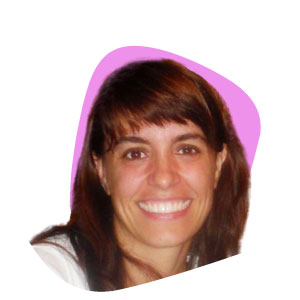
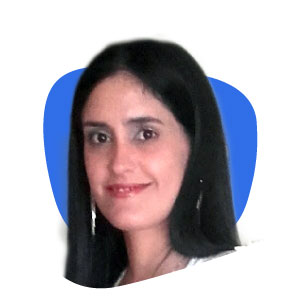
If you want to ask questions… Games + Movement Galore!
Most students find asking grammatically correct questions in English a considerable challenge. Come to this workshop and take home a collection of useful ideas to practise such a strenuous grammar point in a fun way. Most of the games that will be presented incorporate movement and may be used with students of different ages and varied levels of English and with different class dynamics
Prof. Natalia Carbonell
Natalia Carbonell is an English teacher from Instituto Nacional Superior del Profesorado Técnico de la Universidad Tecnológica Nacional.She has been teaching English in primary and secondary schools for 19 years.
She also works as a translator and proofreader for School Publishing Group, translating texts and designing activities for educational books in the USA. She was an assistant teacher in Didactics for EGB at Universidad Tecnológica Nacional
She is co-author of the recently published resource book Games Galore! A Treasury of Useful Ideas for Teachers
Lic. Nylia Monté
Nylia Monté is a Psychologist from Universidad del Salvador. An English Teacher from Instituto Nacional Superior del Profesorado Técnico de la Universidad Tecnológica Nacional. She has studied Applied Neuropedagogy at Universidad de Belgrano and has done Postgraduate courses in Neurosciences and Education at Universidad Católica Argentina and Universidad de San Andrés. She has also studied Brain-Based Learning in the USA.
She is currently the Head of the Primary School English Department at Nueva Escuela Argentina 2000 and is an English teacher at ICANA.
She was co-founder and Director of Studies in a language institute for 10 years.
She is co-author of the recently published resource book Games Galore! A Treasury of Useful Ideas for Teachers.

Teaching beyond Traditional Phonetics: A more current approach to pronunciation
Traditional pronunciation lessons zealously pursued accuracy and, to achieve such aim, heavily relied on meaningless repetition. This approach seems to have shaped corseted non-native speakers with a stilted pronunciation and a choppy intonation. In view of this, it is of paramount importance to go beyond and teach pronunciation in a more meaningful way so that students can acquire practical strategies that will boost their speaking performance. This talk is aimed at sharing authentic activities which will surely enhance your students’ pronunciation and empower them as language users.
Lic. Pablo Demarchi
Pablo Demarchi holds a degree in English Language and a postgraduate degree in English Language Teaching from Universidad del Salvador (USAL). He completed the intensive programme on Contemporary Phonetics at University of London.
He is currently pursuing a Master’s Degree in Institutional Communications Management at Universidad Argentina de la Empresa (UADE).
Pablo serves as Managing Director of Path International Examinations. He is a Phonetics and Phonology Lecturer at Universidad del Salvador (USAL) in Buenos Aires, Argentina. He is also an Active Member of the International Phonetic Association (IPA).
Pablo has lectured at different conferences on teaching English as a foreign language. Pablo is also a Licensed Private Pilot, and has taught communication skills for pilots and air traffic controllers to meet the ICAO language proficiency standards.

Spot, customize and exploit songs like never before!
To say that songs are a valuable resource in the EFL classroom is a gigantic platitude. Playing music has been proven to be equivalent to setting off fireworks in the brain of our students. While they get exposed to targeted language and grammar, song lyrics can take our learners back in time or strike a very sensitive chord with them in seconds. Let´s explore some innovative ways to exploit these and many other blessings that songs may bring into the language classroom for intermediate and advanced students.
Lic. Mariano Nastri
Profesor en Inglés e Inglés Técnico and Licenciado en Lengua Inglesa from Universidad Tecnológica Nacional. He is a Profesor Especialista en Lengua Inglesa from Facultad Regional Villa María, UTN.
University Assistant Lecturer in Language III and IV at Instituto Nacional Superior del Profesorado Técnico de la Universidad Tecnológica Nacional.
Primary and Secondary school teacher at various educational institutions. He has specialized in in-company EFL teaching training professionals and executives for more than 15 years

Flow Theory: when everything in the classroom clicks!
Every new chapter of the academic year brings with it its own hopes and fears. And when your classroom door opens for the next episode of 2022, what will your students find there? The answer to this question lies in your hands alone.
Perhaps paradoxically, that answer may be found in those hopes and fears themselves: the concept of flow in education has been described as the perfect balance of joy and challenge, whereby sustained attention means that students lose themselves in their activities. How can we foster flow in our classrooms in the winter and spring of 2022? Join us as we open the door to Flow Theory.
Alastair Grant B.A.
Alastair Grant is an English Teacher, Teacher Trainer and ELT materials writer.
He is the Academic Director at Colegio Nuevo Las Lomas. He is a consultant on the Profesorado de Inglés at the Universidad Tecnológica Nacional in Buenos Aires, where he has lectured in Discourse Analysis and Methodology.
He holds an Honours Degree in English Literature and Philosophy from the University of Warwick in the UK. He has completed the Cambridge CELTA, the International House Certificate of Advanced Methodology, the Cambridge Delta and the Cambridge “Train the Trainer” Certificate. He is a teacher trainer with International House, Uruguay.

If you want to be a good teacher keep your eyes wide open onto the world!
Open your eyes, but not just to look! Go beyond what you see every day…Start observing with all your senses and apply your discoveries to your daily teaching. Your students, the environment, the world have so much to give! Be a good observer and become the passionate teacher your students will never forget!
Lic. Ricardo Spizzo
Ricardo Spizzo graduated as a Teacher of English from ‘Instituto Superior de Formación Docente y Técnica Nº 52’. He holds a degree as ‘Licenciado en Lengua Inglesa’ from Universidad del Salvador.
He has been a teacher for more than twenty-five years at kinder, primary, secondary and university levels. He is currently working as a teacher and facilitator at Colegio Los Molinos, He is an Assistant Professor at Universidad de Buenos Aires and Director of ‘The English House’ On-line Institute.
He also coordinates the English Department at Colegio Cristiano de Martinez and delivers lectures on Education and Inclusion.
Former ‘Linguistics’ Teacher for Universidad del Salvador and Profesor de ‘Práctica Docente para nivel Inicial’ for Centro Cultural Italiano. He has specialized in Teaching students with Specific Learning Differences and Phonological Awareness.
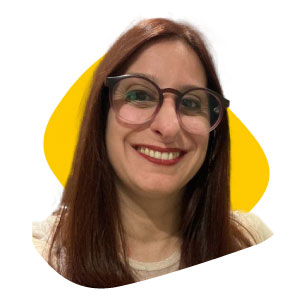
Digital Collaboration tasks for the face-to-face and online classroom
What will we be talking about?
A bit of theory
Digital collaboration tasks and
Classroom management tips
Lic. Vicky Saumell
Vicky Saumell holds the following degrees: Traductor Literario y Técnico Científico From Asociación Argentina de Cultura Inglesa, Licenciada enTecnología Educativa From Universidad Tecnológica Nacional and a Diploma in the Theory and Methodology of TESOL (Eurolink and the College of Teachers).
She is co-author of Teacher Development Interactive: Preparation for the TKT (Pearson), and series consultant for English in Common (Pearson).
She has written and presented for Pearson, CUP, Macmillan and Santillana

Los desafíos que la pandemia nos dejó. De enseñanzas y aprendizajes escolares diversos.
Esta presentación forma parte de la serie de conferencias de este Congreso Nacional SHARE 2022 destinadas a promover una profunda reflexión sobre los efectos de la pandemia covid 19 en el plano personal y , socialmente, en los entornos familiar y comunitario y muy especialmente en el contexto escolástico y en lo que hace a los aprendizajes mediados por la escuela.
Magister Mariana Damonte
Magister en Integración de Personas con Discapacidad. Universidad de Salamanca.
Profesora Universitaria en Psicopedagogía por la Universidad Argentina “John F. Kennedy”. Licenciada en Calidad de Gestión de la Educación por la. Universidad del Salvador. Psicopedagoga por el Consejo Superior de Educación Católica. Maestra Especializada en Educación Inicial graduada en el Instituto Superior de Formación DocenteN°39. Vte López. Buenos Aires
Coordinadora de Supervisión Pedagógica de Educación Especial. Dirección General de Educación de Gestión Privada. Ministerio de Educación. CABA. Profesora en Carrera de Psicopedagogía en el Instituto de Educación Superior N°1 Alicia Moreau de Justo. CABA.
Profesora en la Licenciatura en Educación, Universidad de Flores y en la Maestría en Innovación Educativa- Virtual. Universidad Siglo 21.
Psicopedagoga miembro del equipo terapéutico de Asociación Mutual AIDIS, asistencia e integración de personas con discapacidad. Co-coordinadora del Espacio Mirar de a Dos Espacio para desentrañar la Escuela y poner en pausa la Clínica Psicopedagógica.
Autora de artículos sobre Clínica Psicopedagógica y Educación en revistas especializadas. Vicedirectora del Instituto “Infancias”
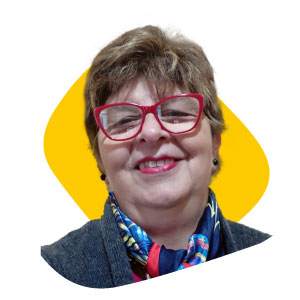
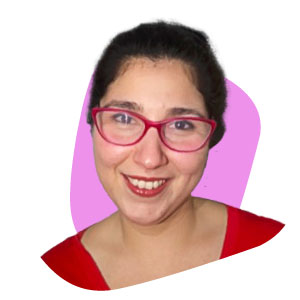
Why are our students finding learning harder after the pandemic?
In the first part of this session, Lic. María Victoria Ottolina will analyse the post-pandemic scenario, paying special attention to two issues we face in all our classes: depression and anxiety. She will then discuss the prerequisites for learning, focusing on basic concepts such as attention and memory.
In the second part, Prof. Alejandra Ottolina will provide examples of how our teaching strategies may hinder or foster meaningful learning.
We will work on the idea that, although neurosciences are making great progress and we should all take advantage of that, each student is much more than a body with a brain.
The first part of the talk will be in Spanish.
After the presentation, Alejandra and Vicky will answer personal questions and discuss special cases at the Macmillan stand.
Prof. Alejandra Ottolina and Lic. María Victoria Ottolina
Alejandra Ottolina is a Director of Studies at Santa Monica School of Languages,
She is an experienced accredited teacher trainer for: C.O.T.E (Certificate for Overseas teachers of English) and I.C.E.L.T. (In-service Certificate for English Language Teachers) – University of Cambridge.
Alejandra has lectured all over Argentina as well as in TEFL congresses in Uruguay and Paraguay. She is the Course Consultant for “Winners” and her work as an author includes the Winners teacher’s books, the CLIL section in the Switch On series and its teacher’s books, among others.
María Victoria Ottolina es Licenciada en Psicología Universidad de Buenos Aires y Profesora en Educación Secundaria y Superior (UBA). Tiene un posgrado en Psicopedagogía Clínica (UBA) y otro en Constructivismo y Educación de la Facultad Latinoamericana de Ciencias Sociales.
Se desempeña en la Universidad de Buenos Aires como profesora de Psicología General en el CBC y en la carrera de Psicología de la misma universidad. Trabaja en Inclusión escolar tanto en castellano como en inglés, a cargo del Departamento de Special Needs de SANTA MONICA School of Languages.
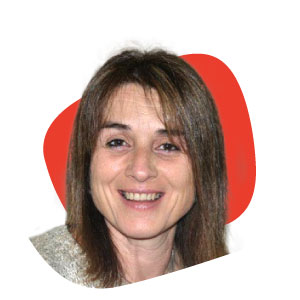
Noisy, unruly and demotivated students? Try social-emotional learning!
Do you ever have trouble setting goals or making decisions? What about coping with emotions? Or getting along with — and feeling empathy for — others? These are all important social and emotional skills.
Now and then, your classroom may inevitably get noisy. Often it is like a domino effect, one starts talking, and then like a wave it takes over the entire classroom. No matter their age, no matter what subject you may be teaching, there are those days when the decibels in the classroom seem to be rising and rising. Sometimes students may just be full of energy, other times they just want to discuss anything but schoolwork. This can be disruptive to your lesson plans. Social Emotional Learning is the key!
Prof. Sandra Frattini
Profesora de Inglés form Instituto Superior del Profesorado “Dr. Joaquin V Gonzalez”.Master Practitioner in Neurolinguistic Programming (NLP) applied to education from “Escuela de PNL y Coaching”, Coach Ontologico, organizacional y educativo from Escuela de PNL y Coaching, Neurosicoeducadora from Asociacion Educar, , She is the founder of SF IDIOMAS and E&N (Educación y Neurociencias).
She has given many talks in Spanish as well as in English focusing mainly on Neuroscience and the Teenage brain. She holds a “Diplomatura en Educación Emocional“ from Universidad Nacional Villa María, Córdoba. She has a specialization in Neuroscience applied to Education called “Curso Universitario de Neurosicoeducador” con certificado de la Universidad de Buenos Aires.
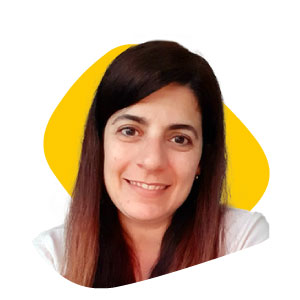
Open a book, open your mind. Reading Strategies in the YL classroom.
Reading skills can be seen as challenging and boring by both, students and teachers. In this presentation different innovative ways to deal with reading materials will be presented to make it an enjoyable experience. Participants will take hands-on activities to exploit different reading resources at the most.
Prof. Eugenia Dell´ Osa
Eugenia Dell’Osa graduated as a Profesora de Inglés from Instituto Nacional Superior del Profesorado Técnico de la Universidad Tecnológica Nacional. She has been a Whole Language facilitator and an English in Action teacher, teaching English to Special Educational Needs students through Process Drama. She is currently an Educational Consultant and Material Designer for The Buenos Aires Players®; and an Alternative Language Learning® Teacher Trainer and Material Designer. She ran her own language school for babies and Very Young Learners.
She founded Plan Up, to provide teachers with practical hands-on tools and strategies from real experience and has delivered workshops and talks in Argentina and Chile.
She has been a Deputy Head at Glasgow Kindergarten, a Bilingual Kindergarten in Greater Buenos Aires.She is currently the Head of English of a prestigious school in Buenos Aires

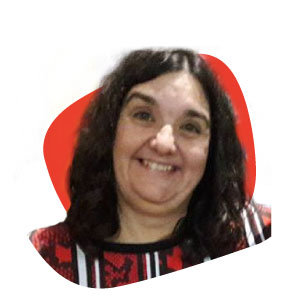
Playing Jeopardy with teenagers for more effective language practice.
Many popular games are usually included in the classroom with the intention of transforming a learning activity into an engaging experience. David Magolis and Linda Neyer (2011) believe that using games in the classroom livens up the classroom experience, provides practice in information literacy skills and concepts and increases classroom discussion and students’ motivation.
Jeopardy is a classic game used in different fields. According to Simkin (2013) many classroom experiments have been conducted with Jeopardy, a game that can be included in the English class not only as an ice breaker but also as a round-up to finish a course. Another advantage is that this game can be used for a variety of ages and for different topics or subjects.Our intention is to show how Jeopardy can have a positive result when used as an evaluation tool. We also share the benefits that the game provides following an experience with students at secondary school.
Dra. M. Rosa Mucci & Dra. Beatriz Castiñeira
María Rosa Mucci, Doctora en Lenguas Modernas, Universidad del Salvador (summa cum laude). Licenciada en Educación, Universidad Nacional de Quilmes. Diploma Superior en Educación, Medios e Imágenes, Facultad Latinoamericana de Ciencias Sociales. Directora de la Licenciatura en Lengua Inglesa, UTN- Avellaneda. Especialista en Estudios Culturales, Estudios Literarios y Filosofía del Cine.
Beatriz Castiñeira, Doctora en Lenguas Modernas, Universidad del Salvador. Licenciada en Lengua Inglesa, USAL. Co-directora de la Licenciatura en Lengua Inglesa, UTN- Avellaneda. Especialista en Lengua Inglesa, Análisis del Discurso y Metodología de la Investigación.
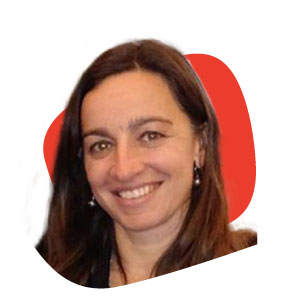
Let’s shape up and team up! Creating the best conditions to grow together
A team is a group of people working together towards a common goal and it is a natural way of organizing human activity. It combines individuals and talents.
The presentation’s aim is to share ideas and personal experience on the power of team work and how beneficial any endeavor can become when undertaken by individuals who have come together in synergistic relationships. The points to be discussed are how teams can keep together to make progress and under which conditions people would be able to feel empowered to grow, develop and excel.
Prof. & Trad. Betiana Grillone
Betiana Grillone is a Traductora Pública y Profesora Universitaria en Ingles graduated at Universidad Adventista del Plata. She has been a secondary school teacher at Instituto Madre de Jesús for 24 years, and a primary school teacher for 10 years. She has also been the English Department coordinator at the same institution. She has founded and directed a private language institute Success – School of English now in its 25th anniversary. This year she created the 1st English theatre company with teens Success Drama Players.
In 2016 & 2017 SHARE Education granted her Institute an award “en reconocimiento a su destacada contribución al desarrollo profesional de sus docentes y su interés por optimizar la calidad del al enseñanza del idioma inglés en su zona de influencia”
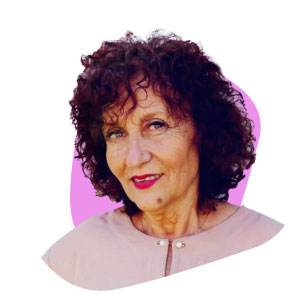
Brains on fire: Essential resources for a “glowing” class
The aim of this presentation is to make English teachers realize about how much brain research has advanced in the last decades and therefore, make the most of a class taking into account this knowledge. In this sense, teachers will receive practical tools and tips that will provide them with better academic results in a shorter time as well as an approach to the know- how of a well experienced methodology
Prof. Liliana Bellolio
Liliana Bellolio se graduó como profesora de Inglés en 1975 del Instituto Superior del Profesorado ”Nuestra Sra del Sagrado
Corazón”, especializándose en Fonética Inglesa. En su alma mater ocupó las cátedras de Literatura norteamericana,
Lengua Inglesa y Fonética, y cursos especiales de Lecto Comprensión de Inglés en la Facultad de Ciencias Físicas y Naturales de la Universidad Nacional de Córdoba.
Abrió su propio instituto CIL y estudió cómo funciona el cerebro para aprender los contenidos de lengua extranjera y patentó CILMETHOD. Ha dictado numerosos cursos de actualización docente a través de la Red Provincial de Formación
Docente Continua del Ministerio de Educación de la Provincia de Córdoba .Desde el 2012 a la actualidad CIL forma parte del Grupo de Turismo Idiomático de Córdoba.
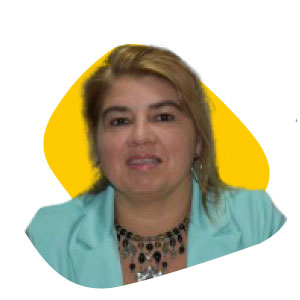
Executive brain function skills for better life and learning.
This talk tries to unveil the importance of creating a classroom culture that promotes Executive Function. Attention will be placed not only on how EF function strategies can be taught but also on how they affect students’ Academic Performance.
Mgter. Liliana Vidal
Liliana Vidal holds a Master en Lingüística Aplicada a la Enseñanza del Inglés From Universidad Europea del Atlántico.(Santander –España). She has studied Neurosicoeducacion at Asociación Educar, Buenos Aires. Argentina and Neuropedagogia at Universidad de Nebrija. España.
She is also a Licenciada en Lengua y Literaturas Inglesas From . UCEL, Universidad del Centro Educativo Latinoamericano. Rosario. Santa Fe. Argentina and a Profesora en Inglés From Profesorado Nro 16 “Bernardo Houssay”.Rosario .Santa Fe. Argentina.
She is currently a teacher at Colegio del Sol De Funes,Santa Fe, Liceo Aeronáutico Militar and Instituto Saint Patrick. Funes, Santa Fe.

“Celebrating gender equality though children’s picture books”
Children are surrounded by gender lore from a very young age. Traditional gender roles and stereotypes come across as completely natural in the classroom. This talk invites the audience to explore non-stereotyped children’s picture books to rethink the concept of gender in order to embrace equality and diversity. Selected titles and fail-proof classroom strategies are promised.
Lic. Romina Muse
Romina Muse is a teacher of English with more than 20 years of experience in teaching English in all levels and sectors of education in the city of Buenos Aires, Argentina. She holds a degree in English from Instituto Superior del Profesorado Dr Joaquín V González and a Diploma in Neuropsychology and Learning Disabilities from Universidad de Morón. She also holds a Licenciatura in English from Universidad Nacional de San Martín.
She is currently working for the British Council as a freelance remote teacher. She is Publication Assistant for IATEFL Young Learners & Teens special interest group. Romina studied in Cambridge, England, where she took courses in ESL and taught Spanish as a foreign language. She is a presenter and researcher in the field of language and learning disabilities. She has lectured on language learning, special needs, and behaviour management and lately on gender equality among other topics at prestigious national and international conferences.

El tercer maestro, espacio que ayuda al aprendizaje.
Llamamos el tercer maestro al espacio de aprendizaje, entendiendo que los dos
anteriores son los padres y los profesores. El espacio-ambiente entendido como un
elemento fundamental, que busca la conexión entre la arquitectura y el proyecto
pedagógico
Las neurociencias aplicadas a la arquitectura se basan en cómo el entorno modifica el cerebro y por lo tanto, el comportamiento.
Entonces, es hora de abordar ahora la influencia del espacio en nuestros cerebros y,
en consecuencia, en los cerebros de nuestros alumnos.
Hace falta entender el ambiente como un sistema y un
proceso, donde numerosos factores influyen en el desarrollo y aprendizaje del
alumnado y de los adultos que acompañan. Cada vez es más fuerte el conceso en el cambio de paradigmas en la educación,
entonces, ¿los espacios deberían acompañar estos cambios? ¿Debemos diseñar o
pensar los espacios-ambientes de las aulas para que se modifique el tipo de
educación?
Arq. Viviana Salinas
Es arquitecta y urbanista.Luego de egresar de la Universidad de Córdoba, realizó su pos-graduación en Arquitectura
interior en la Universidad de Buenos Aires y se formó en Evaluación de Proyectos de Inversión en la Universidad de Palermo.
Su pasión por entender el impacto del entorno en la pandemia, la impulsó a cruzar fronteras con
sus estudios y a formarse en Neurociencias aplicadas a la arquitectura, Neuroarquitectura, en Brasil. Actualmente es Miembro de ANFA (Academy of Neuroscience for Architecture), San Diego, EEUU. Miembro de ACE (ANFA Center for Education) en EEUU donde su misión es promover y generar equipos interdisciplinarios con foco en la educación. Es Miembro de diversos Grupos de Estudios de Neuroarquitectura en Curitiba, Lisboa y Orlando.
Actualmente es socia de CIL Centro de Lenguas generando nuevos proyectos y conjuntamente idearon Creando Futuro donde brindan capacitación a directores de centros educativos de idiomas para mejorar sus espacios y así impactar en el aprendizaje de sus estudiantes

Creativity is not my thing … or is it?’ Rethinking creativity in the EFL classroom
Creativity is one of the main pillars of 21st Century Skills and yet, it is often neglected in the EFL classroom as teachers may not consider themselves ‘creative enough’. But is creativity just the exclusive domain of artists and gifted people? What stops teachers from being creative? How can we turn the language classroom into a truly creative experience without turning into Da Vincis and Einsteins?
Mgter. Laura Aza
Magíster Laura Aza is a Profesora en Inglés From Instituto Superior Del Profesorado Dr. Joaquín V. González. She holds a Master of Arts degree in Applied Linguistics for TESOL from Lancaster University, United Kingdom.
She has been a Co-directora at Consultora Educativa Teachosophy since 2017 and a Lecturer at Instituto Superior Del Profesorado Dr. Joaquín V. González since 2005. She has been a lecturer in different Higher Education institutions in our country.

Developing Teamwork in the Classroom.
Effective teamwork may begin and end with communication, but that’s not the whole story. Working closely in a team involves personal growth and the development of a wide range of leadership, positive collaboration and problem-solving skills. Developing teamwork in the classroom can steadily improve your students’ performance and really help bring out the best in them. Join Gregg Sotiropoulos and together you will examine just how teamwork achieves this, while keeping in mind the key element of communication
Mgter. Gregg Sotiropoulus
Beginning his career in education in 1996 as an elementary school teacher in New York, Gregg continues to this day to motivate, inspire and coach both teachers and students worldwide. In today’s everchanging society his approach to education is led by the guiding principle of “filotimo”, simply translated by “doing good”.
He holds a bachelor’s degree with a double major in Education and Art and an MBA with a focus on managerial interactions.
Gregg has participated in numerous conferences delivering plenaries, workshops and seminars concentrating on Leadership, Coaching, Motivation, and Professional Development. He is currently working for MM Publications as an ELT Academic Consultant and teacher trainer.
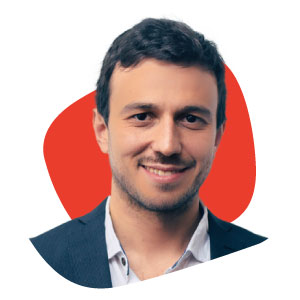
Esas son Reebok o son Nike? Developing powerful listening skills in the classroom.
Listening is, undoubtedly, the most difficult skill to master, since while we have control over what we say, we have no control at all over what syntax, vocabulary, or pronunciation others will use on us. Moreover, our own native language may be playing a number of “dirty” tricks on us when it comes to decoding a message, and here a myriad of elements may be at play, from our interlocutors´ tempo of delivery, their diction, our culture and our presuppositions among others. May be we can give the whole question a fresh look and a twist to help our students build more powerful listening.
Lic. Martín Villarreal
Martin graduated as a Profesor en Inglés e Inglés Técnico at Instituto Nacional Superior del Profesorado Técnico de la Universidad Tecnológica Nacional.
He is also a Licenciado en Lengua Inglesa (summa cum laude) from Universidad Tecnológica Nacional.
He holds the Certificado Universitario de Especialista en Lengua Inglesa from Facultad Regional Villa María de la UTN and Certificado Superior de Especialización en Lengua Inglesa from INSPT- UTN where he also got his Certificado de Profesor Especialista en Fonética y Fonología Inglesas (summa cum laude).
Martin has finished his Especialización en Administración de la Educación from Escuela de Gobierno, Universidad Torcuato Di Tella and is currently writing his dissertation for his Maestría en Marketing Estratégico at Universidad UCES.
He was a secondary school teacher of English at Colegio Nacional de Buenos Aires, Universidad de Buenos Aires and a teacher of Business Studies at Oakhill School.
He is currently teaching at Carrera de Ingeniería at Facultad Regional Buenos Aires, Traductorado Público at Universidad Nacional de Lanús, Universidad Nacional de San Isidro, Escuela Normal Superior en Lenguas Vivas “Sofía E. Broquen de Spangenberg”,
He is the Executive President of SHARE Education and the founder and president of Campus Nube.
He attended the International Visitors Leadership Program in the United States on a scholarship from the Department of State of the US and in 2010 he finished (summa cum laude) his Course on Critical Thinking in the Teaching of English as a Second Language in the Linguistics Department of the Universidad de Oregon, USA.
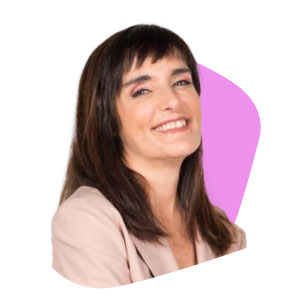
Storytelling to Develop Powerful Listening
This presentation aims at exploring the active role of the listener during a performative storytelling experience. What main storytelling procedure is key to make a story live in our students’ minds and souls forever? Participants will get to know the specific moves listening fully entails and how the oral tradition may naturally encourage their students to take action. Concrete techniques to gain expressive tools will be experienced along the talk.
Prof. Esp. Fabiana Parano
Fabiana Parano is an English teacher, a storyteller, an actress and a writer. She has created and performs STORIES IN A BAG. Fabiana is a graduate teacher of English and holds a major degree in “El Juego en Contextos Educativos” from Ministerio de Educación de la Nación.
She teaches Storytelling in the Classroom at Instituto de Enseñanza Superior en Lenguas Vivas “Juan Ramón Fernández” and at Escuela de Maestros (Ministerio de Educación, C.A.B.A.). She also teaches Drama Techniques in the Classroom and Saberes Lúdicos, Motores y Corporales at Instituto Superior del Profesorado “Joaquín V. González”.
In 2022, she was awarded the LIFE ACHIEVEMENT AWARD by SHARE Education

Helping our students to think critically may be the best way to teach them.
We can always make a difference in the way we introduce new ideas and develop Critical Thinking strategies for our students’ language learning process. In this session, we will focus on activities to enhance our students’ thinking skills. From young learners to adults, from reading to speaking, from Maslow to Bloom… we will help them think!
Prof. Eugenia Dell´ Osa
Eugenia Dell’Osa graduated as Profesora de Inglés from Instituto Nacional Superior del Profesorado Técnico de la Universidad Tecnológica Nacional. She has been a Whole Language facilitator and an English in Action teacher, teaching English to Special Educational Needs students through Process Drama.
She is currently an Educational Consultant and Material Designer for The Buenos Aires Players®; and an Alternative Language Learning® Teacher Trainer and Material Designer. She ran her own language school for babies and Very Young Learners.
She founded Plan Up, to provide teachers with practical hands-on tools and strategies from real experience and has delivered workshops and talks in Argentina and Chile.
She has been a Deputy Head at Glasgow Kindergarten, a Bilingual Kindergarten in Greater Buenos Aires. She is currently the Head of English of a prestigious school in Buenos Aires
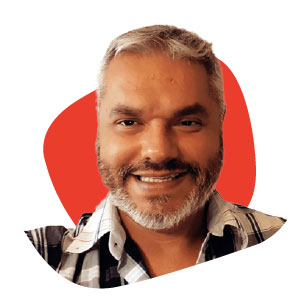
How to stage ten minute plays during your breaks.
Closing Plenary
Prof. Alejandro Diharce
Mr Diharce will focus on giving the audience practical ideas on how to enrich the learners’ language through drama exercises. In addition, the participants will be provided with guidelines on how to assess the learners’ achievements in an artful way.
Alejandro Diharce is an experienced English Language Teacher, former Academic Coordinator and current “Director de Secundaria” at Colegio Nacional Varela, graduated over 25 years ago at Alianza Americana Uruguay – Estados Unidos, who has undergone formal training in the Performing Arts.
He has taught English Language and Drama in various Bilingual Schools and English Institutes, always linking Language & Art in different contexts.
Mr Diharce has attended Drama in Education courses in New Zealand. He is also a Speaking Examiner, Drama Examiner and Teacher Trainer (Oxford University).
Alejandro is also the URUTESOL President for the 2021/2022 period.
Beyond “Hit or Miss”. Rethinking Assessment for the Emerging Generations
Gen Z and Alpha learners display distinct generational traits and specific cognitive needs that require rethinking assessment strategies, especially in the post-pandemic.
This fast-paced, neuro-friendly, practice-oriented presentation reveals essential ‘whys’ behind students’ collective performance, updates the ‘whens’ and ‘hows’ of widely used assessment practices and provides tips for designing innovative feedback for learning.
Get ready to learn about what works, what doesn’t, and what’s next!
Dra. Silvia Breiburd
She is an Abogada from Universidad de Buenos Aires. Profesora en Inglés from CONSUDEC- Consejo Superior de Educación Católica, and holds a Diploma in Applied Educational Leadership and Management with the University of London.
In addition, Silvia is co-founder of Argentina ASCD, Vice President for Argentina TESOL and currently lectures on Ética y Deontología de la Profesión Docente at Instituto Nacional Superior del Profesorado Técnico, Universidad Tecnológica Nacional.
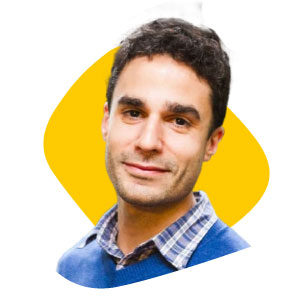
La pandemia que todo lo cambió, también cambió a los chicos. Estrategias para las aulas de hoy.
Esta presentación forma parte de la serie de conferencias de este Congreso Nacional SHARE 2022 destinadas a promover una profunda reflexión sobre los efectos de la pandemia covid 19 en el plano personal y , socialmente, en los entornos familiar y comunitario y muy especialmente en el contexto escolástico y en lo que hace a los aprendizajes mediados por la escuela.
Lic. Andres Luraghi

The Digital ELT Classroom: You Can Make it Happen
What makes an ELT classroom digital? What factors should teachers consider when selecting technology for the classroom? The most common mistake that teachers make is to assume that technology by itself will magically improve the educational system. The aim of this presentation is to provide teachers with practical suggestions and tips on how to incorporate technology to support English language teaching and learning.
Prof. Alfredo Bilopolsky
Profesor de Inglés e Inglés Técnico from Instituto Nacional Superior del Profesorado Técnico de la Universidad Tecnológica Nacional. English Coordinator at Escuela Scholem Aleijem.
He has delivered workshops on the use of Technology for English language learning, and on Teaching Young and Very Young Learners in different conferences in Argentina and abroad.
He is an Assistant Lecturer in Trabajo de Campo at Universidad Tecnológica Nacional. He has completed a postgraduate course in ICT and Education at Universidad CAECE. He is a Google Certified Educator and a member of the International Society for Technology in Education (ISTE).
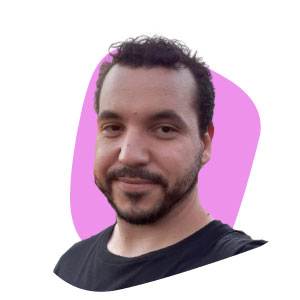
Using all available materials to help your students improve their pronunciation
Have you ever felt the need to integrate pronunciation practice into your EFL courses but got the feeling that there’s not enough time nor room for it? If that’s the case, let’s explore the possibilities together using the resources you have at hand, and more!
Lic. Santiago Mazzei
Santiago Mazzei graduated as Profesor de Inglés from Instituto Superior de Formación Docente Nº 41 in Adrogué.
He is also a Licenciado en Lengua Inglesa (summa cum laude) from Universidad Tecnológica Nacional.
He has been a primary and secondary school teacher at various educational institutions, and is currently teaching at tertiary level institutions Instituto Superior de Formación Docente Nº 1, Instituto Superior de Formación Docente Nº 41, and Instituto Superior de Formación Docente y Técnica Nº 53.
He is a candidate to the PhD in Education (Doctorado en Ciencias de la Educación) at Universidad del Salvador (USAL).
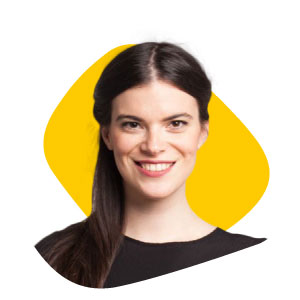
Make the most of Drama Tools in the classroom!
Incorporate drama activities and tools in your English classroom! Experience a variety of practical and concrete ideas to spark creativity and engage your students, and create a positive learning environment.
Prof. Catalina Huberman
Actriz y Profesora de Teatro argentina.Después de estudiar Comedia Musical en la “Fundación Julio Bocca,” continuó sus estudios en la American Musical and Dramatic Academy en Nueva York. Ha trabajado en diferentes colegios e instituciones privadas, siendo Drama Teacher, montando Concerts y como profesora de curso
Ha sido columnista de teatro en radio DELTA 90.3 y en pensamientosliterarios.com.
Dictó talleres para docentes, en congresos e instituciones, de herramientas actorales aplicadas en el aula.
Durante el 2020, dicto clases online en The Naples Players, en Naples, Florida, US; y en Scripss Onstage en San Diego, California, US.
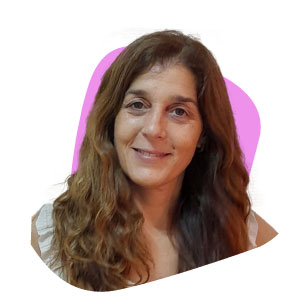

A creative toolkit for your English lessons
Over the years, educators have been accompanying the changes in Education by searching for those strategies or techniques that may help their students acquire skills and competencies to face the challenges of the world. However, experience has shown that what happens in our classrooms does not always agree with the well-known theoretical frameworks. Following the yardstick of Neurodidactics, Flipped learning, Literature, Reading and Writing skills, and active and brain-friendly principles, this workshop has the purpose of exploring a unique toolkit of creative ideas, games and activities ready to be used by teachers and students in their classes.
Lic. Gabriela Garibotto & Lic. Noelia Garfinkiel
Gabriela Garibotto is an international speaker, she holds a TEFL degree (UCAECE), is a specialist in emotional intelligence, and holds a degree in Neuro-psychological Education from Universidad de Buenos Aires. She holds a Diploma in Innovation and Educational Technology from Universidad Tecnológica Nacional and a Flipped Learning Certification from FL Global Initiative.
She is currently attending her Master in Educational Technology at Universidad Abierta Latinoamericana (UAI)
She has been in charge of the Flipped Learning Electronic Village Online (EVO) Sessions since 2018. Co-founder of Educa.ideas. Educational advisor
Noelia Garfinkiel is an international speaker, and a graduate teacher of English from Universidad del Museo Social Argentino and she holds a Licenciatura in in Teaching English and Materials Design from Universidad CAECE.
She holds a Higher Diploma in Reading, Writing, and Education and a certificate in Creative Writing for educators, both from Facultad Latinoamericana en Ciencias Sociales, and has specialised in Storytelling at Instituto de Enseñanza Superior en Lenguas Vivas “Juan Ramon Fernandez”.
She is an Educational Advisor and Co-founder of Educa.ideas.

Post Pandemia en el aula e Inteligencia emocional
Esta presentación forma parte de la serie de conferencias de este Congreso Nacional SHARE 2022 destinadas a promover una profunda reflexión sobre los efectos de la pandemia Covid 19 en el plano personal y , socialmente, en los entornos familiar y comunitario y muy especialmente en el contexto escolástico y en lo que hace a los aprendizajes mediados por la escuela.
Dr. Diego Flannery
Obtuvo los grados de Licenciado en Psicología y Profesor Universitario en Psicología por la Universidad Argentina “John F. Kennedy”.
Es Magister en Salud Mental por la Universidad de León, España. Es Doctor en Psicología Social por la Universidad Argentina John F. Kennedy.
Es Coordinador Académico Universidad Argentina “John F. Kennedy “, CABA y Profesor Adjunto de la Facultad de Ciencias Psicológicas de la misma Universidad.

Post-Covid Adult Classes: The New Challenge
How can we teach adults after the pandemic? They became the brand-new target in 2020 and 2021 in our online lessons. How do we face this age group now?
In this presentation, I will share how to engage them successfully by providing you with appealing material to create a motivating environment either in your online or in person classes. Your students will view their learning as a more enjoyable experience than before after having learnt what really matters to them now.
Would you like to know more about it? Join me and you will leave this talk knowing how to deal with this new challenge and how to use these exciting activities either in your in person or online ELT Adult Lessons.
Prof. & Trad. Gilda Pincirolli
Profesora de Inglés from Instituto Nacional de Enseñanza Superior en Lenguas Vivas, “Juan Ramón Fernández” and Traductora Pública en Idioma Inglés from Universidad Argentina de la Empresa.
She has done post graduate courses at International House in England and at the University of Louisville in the USA.
She has worked as Teacher Trainer at Instituto de Enseñanza Superior en Lenguas Vivas in Buenos Aires and as Assistant Teacher in Language II at Instituto del Profesorado “Juan N. Terrero” in La Plata.
She has been a Jury Member of at Andree School Final Debate Competition in Chile and has collaborated in Scientific Medical Congresses in Argentina, Spain, India, France, Hungary and Denmark.
She has run her own institution Inglés 58 for the last 23 years and has been in charge of Educational Trips to England and Canada since 2013.
She delivered talks in the Southern Cone TESOL Conference in Curitiba, Brazil in 2019 and in the XV National Congress for the Professional Development of Teachers of English held by Share Education in 2019.
In 2020, Thieme Editing Company published her first medical translation “Proximal Interphalangeal Post-Traumatic Osteoarthritis”, Problems in Hand Surgery, Chapter 53 under her name.
In 2020 and 2021, she worked for the Swedish Company Swemac Innovation in Buenos Aires and at Hospital de Niños de La Plata “ Sor María Ludovica” in the Pediatric and Adolescent Gynecology Unit as a Translator and Interpreter.

Project based learning in action: the road to success!
What is project-based learning? How can we distinguish that from the projects suggested in coursebooks? How can we plan projects so that they’re both motivating and linguistically meaningful? We wll be exploring all these questions together so that we can take concrete ideas to put PBL into practice
Lic. Silvina Santos
Silvina Santos is a graduate teacher from Instituto Superior del Profesorado “Joaquin V, Gonzalez” and a Licenciada en Educación from Universidad de Quilmes.
She is a teacher trainer at TTC and a school coordinator in CABA, where she works with projects on a daily basis.

Soy Profe. ¿Puedo estar sufriendo de depresión covid-19?
Según Freud, una persona sana es aquella capaz de amar y trabajar en paz.
Sin embargo, en Marzo 2020 todos nos vimos obligados a improvisar
nuevas formas de vida frente a la emergencia sanitaria aún vigente. La
Depresión Covid-19 se desencadena tras una inaguantable acumulación de
angustia generada por el miedo y la incertidumbre.
Esta presentación estará centrada en los siguientes interrogantes: ¿De qué
hablamos cuando hablamos de depresión? ¿Por qué hay tantos deprimidos
hoy? ¿Cómo reconocer a una persona deprimida? ¿Qué diferencias hay
entre la depresión clásica y la depresión covid-19? ¿Qué puedo hacer para
ayudar a alguien que se encuentra deprimido en el contexto actual? ¿Cómo
puedo mejorar mi calidad de vida mientras dure la emergencia sanitaria?
Lic. Celeste Lopérfido
Vanina Celeste Lopérfido es Profesora de Inglés (Instituto J.N. Terrero). Es licenciada en la Enseñanza del Idioma Inglés (Universidad CAECE).
Se desempeñó como profesora adscripta de Gramática Inglesa I y II en el Instituto Terrero. También se desempeñó como docente de distintas materias del Profesorado
de Inglés en el ISFD FEB y en el ISFD Nº 49.
Es docente en nivel secundario hace 23 años. Es Profesora de Inglés II en la carrera de Trabajo Social y de Inglés Técnico en la carrera de Seguridad e Higiene en el
Instituto Superior Monseñor Lodigiani. Dictó taller de Inglés a jóvenes y adultos sordos en la Asociación de Sordomudos de La Plata donde también
se desempeñó como asesora pedagógica en los cursos de Lengua de Señas Argentina.
Es autora colaboradora en Psicocode, en Psicología Y Mente y en Revista Educativa El Arcón De Clio. Es socia fundadora de Babel Centro de Idiomas Virtual. Recientemente finalizó la Diplomatura en Neuroliderazgo Organizacional en la Universidad Maimónides. Se encuentra actualmente estudiando Licenciatura en Psicología en la Universidad Nacional de La Plata.

A must-have critical thinking toolkit for the English Classroom
Most students go through 12 years of school without fully developing key thinking skills to face the demands of a rapidly changing world. How can English teachers help develop students´ thinking skills? EFL lessons provide the perfect scenario to boost the development of language and thinking skills. In this presentation, the speaker will present a portfolio of simple, ready-to-use activities and effective strategies to engage students, challenge their minds and enhance their language skills.
Prof. Paola Danesi
Teacher of English From Instituto de Enseñanza Superior en Lenguas Vivas “Juan.R. Fernández”. International Certification on Communicative Language Teaching and Sociolinguistics – Institute of Education, University of London (UK). Currently on a Master Programme on Bilingual Primary Education. TECH University.
Lecturer in English Language III at Instituto de Enseñanza Superior en Lenguas Vivas “Juan.R. Fernández”.
Teacher Trainer at Escuela de Maestros (Ciudad de Buenos Aires Ministry of Education)
Teacher Trainer for Bilingual Schools Programme for Buenos Aires Government
English Department Coordinator at Iosef Caro School (primary and secondary levels)
Materials Writer & ELT presenter